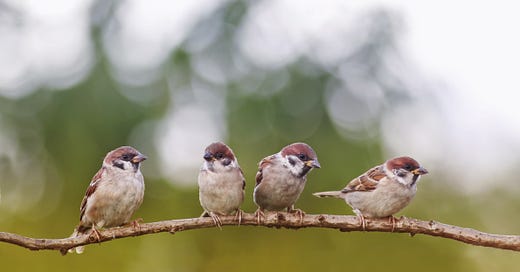Research Hit: When Love Overrides Other Needs
How competing needs are processed in the brain
Of course love overrides everything - how could you think differently?!
Well, no it wouldn’t make sense for love to override everything - we need to be alive to love. The question though, is how do competing needs play out in our brain.
If you’re thirsty and hungry, or hungry and afraid, what do you prioritise and how does the brain do this?
And what’s this got to do with love?
Well, it’s not really love but potential love (or unromantically: potential mating partner) - and in this piece of research it’s in birds, zebra finches to be precise.
In birds?
Yes, it’s not just mice in neuroscience labs. Andrea Roemer et al. of Cornell University wanted to find out how needs compete with each other in animal models. There is plenty of research into motivation for single needs but little on competing needs.
“Love” is also a bit of a stretch of the imagination, or a very human interpretation. Specifically in this case brain signals of a lone male thirsty zebra finch were measured using optogenetics (i.e. very precise measurement of neuronal activity in real time).
First they were recorded as the thirsty finch was given water and trained to recognise signals for water - but then the researcher added a female zebra finch to see what would happen.
Oh, interesting and what did happen?
Keep reading with a 7-day free trial
Subscribe to leading brains Review to keep reading this post and get 7 days of free access to the full post archives.




